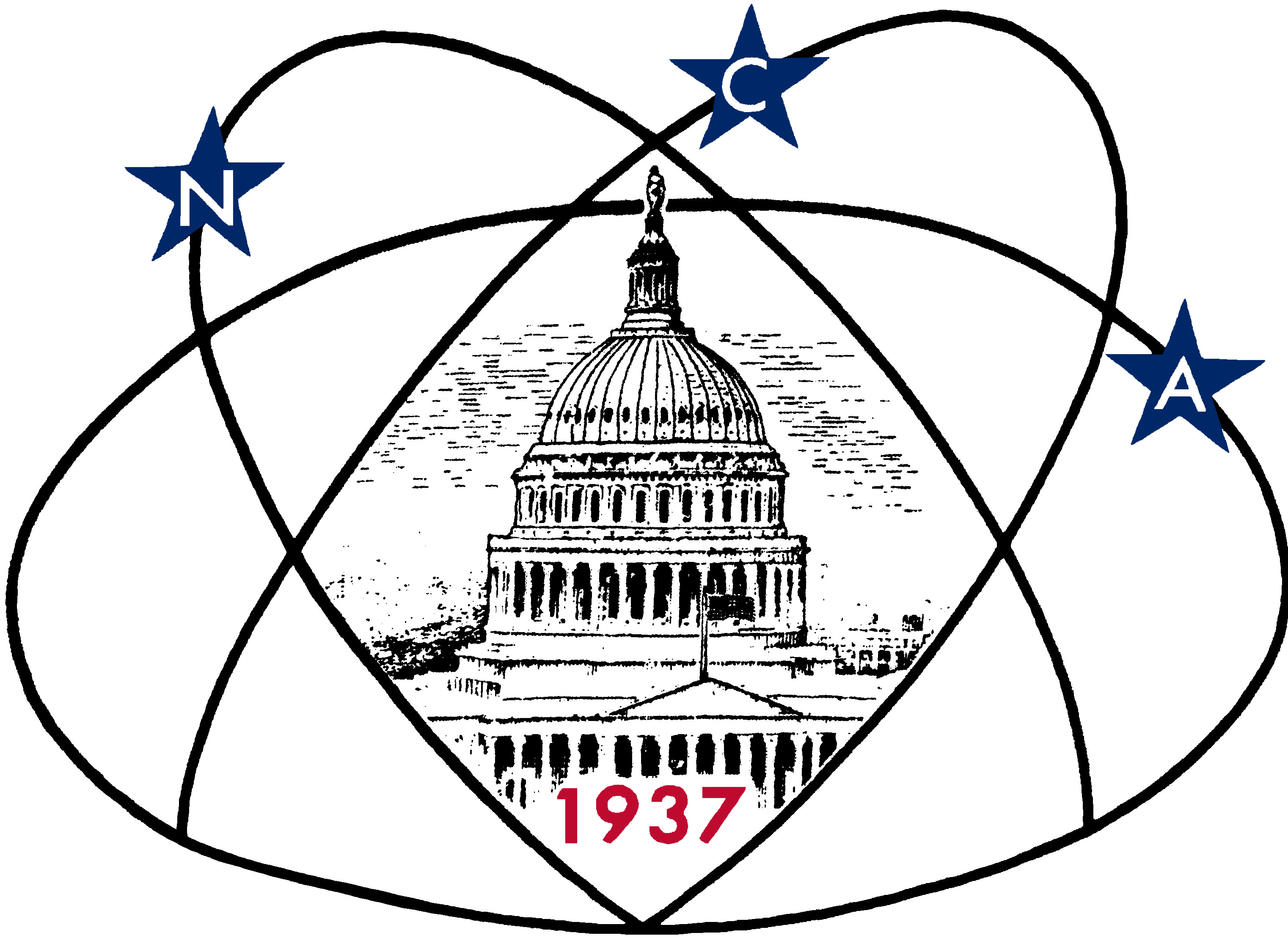

Serving science and society since 1937. The National Capital Astronomers (NCA) is a non-profit, membership supported, volunteer run, public service corporation dedicated to advancing space technology, astronomy, and related sciences through information, participation, and inspiration, via research, lectures and presentations, publications, expeditions, tours, public interpretation, and education. NCA is the astronomy affiliate of the Washington Academy of Sciences. We are also members of the Astronomical League, in fact NCA members helped form the Astronomical League a long time ago.
NCA has for many years published a monthly newsletter called Star Dust that is available for members. Besides announcement of coming NCA meetings and a calendar of monthly events Star Dust contains reviews of past meeting and articles on current astronomical events.
NCA is a very unusual astronomy organization. All are welcome to join. Everyone who looks up to the sky with wonder is an astronomer and welcomed by NCA. You do not have to own a telescope, but if you do own one that is fine, too. You do not have to be deeply knowledgeable in astronomy, but if you are knowledgeable in astronomy that is fine, too. You do not have to have a degree, but if you do that is fine, too. WE ARE THE MOST DIVERSE local ASTRONOMY CLUB anywhere. Come to our meetings and you will find this out. WE REALLY MEAN THIS!
NCA has regular monthly meetings September through June on the second Saturday of the month. For 2024-25, meetings will be held in-person at the University of Maryland Astronomical Observatory in College Park, Maryland (directions/map) AND online via Zoom (details below). Seating is limited, so we are encouraging folks to attend via Zoom.
Public transportation: Directions/maps to the UMD Observatory
Inclement weather: In case of severe weather (tornado/snow/impassable roads), a notice will be placed on the Observatory Website on the day of the meeting. (Be sure to refresh/reload the page to make sure you are seeing an updated page.)
The meetings for this year will be HYBRID (online via Zoom AND in-person), unless otherwise noted!
With permission of the speakers, most meetings will be recorded. Once available the audio and video will be linked.
National Capital Astronomers will be holding its 2024-2025 meetings online via Zoom and in-person. This year, the Zoom meetings have been set up so that there is no registration required. This is the direct Zoom link, it is the same for everybody for every meeting this year. If we have problems with Zoom bombing at a meeting, then the link will be canceled and a new one created that will require registration for subsequent meetings.
As usual, the Zoom room "doors" open at 7pm ET with the actual meeting starting on time at 7:30pm! While you do not need to sign in right at 7pm, please do not wait until 7:35pm!! And since we are not registering folks, it will be important that you have a recognizable name showing so that I can let you in from the virtual waiting room.
With the permission of the guestspeakers, we will be recording the meetings.
Join Zoom Meeting: NCA Monthly Zoom
These guidelines will be updated as needed.
7:30 pm
Each spring, NCA members judge local regional science fairs in order to identify good projects in astronomy. We would like to congratulate the following students on their wonderful projects:
The winners each receive:
We look forward to hearing from these young astronomers at the June meeting!
Weather-permitting, there will be observing through the telescopes after the meeting for members and guests.
The telescope making, maintenance, and modification workshop with Guy Brandenburg is held in the basement (wood shop) of the Chevy Chase Community Center which is located at the intersection of McKinley Street and Connecticut Avenue, NW, a few blocks inside the DC boundary, on the northeast corner of the intersection. The workshop is open on Tuesdays & Fridays, from 6:00 to 9:00 PM. For information visit Guy's Website. To contact Guy, call 202-262-4274 or Email Guy!
Exploring the Sky is a joint program between the National Capital Astronomers and the National Park Service Rock Creek Park Nature Center and has been run since 1948 at this location, the field at the corner of Glover and Military Roads in the District. There is an adjacent parking lot. It is free and all are welcome who have an interest in observing the heavens. It's not an ideal dark sky location but we can still see solar system objects (even the occasional comet), open and globular clusters and maybe a fuzzy galaxy or two.
Questions? Call NCA at 202-262-4274 and leave a message.
| Date | Time | Things of interest |
| 05 Apr | 8:00pm | M45, Orion, Moon, Mars, Jupiter, Uranus |
| 03 May | 9:00pm | M44, Leo, Arcturus, M13, Moon, Mars, Jupiter |
| 07 Jun | 9:00pm | Leo, Bootes, Hercules, M13, Moon |
| 05 Jul | 9:00pm | Moon, Hercules, M13, Summer Triangle |
| 02 Aug | 8:30pm | Moon, Hercules, M13, Summer Triangle, M57 |
| 20 Sep | 8:00pm | Moon, Summer Triangle, Great Square of Pegasus, Saturn |
| 18 Oct | 7:30pm | Summer Triangle, Great Square of Pegasus, M31, Saturn |
| 15 Nov | 7:00pm | Venus, Summer Triangle, Pegasus, M31, Saturn, Uranus |